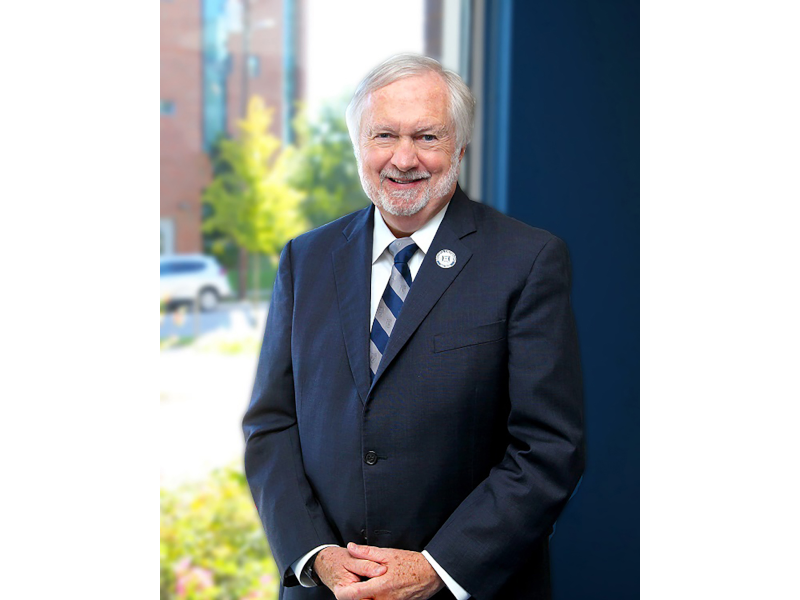Dr. Brooks A. Keel, president of Augusta University, used his annual state of the university speech to reflect back on the past year in which the school dealt with the Covid-19 pandemic, and he outlined his vision for the future of the university.
Keel congratulated the Medical College of Georgia for its success in developing early testing methods of the COVID-19 virus, saying that MCG’s lab tested 182,000 patients. Further, when the vaccine became available, MCG was on the front lines of providing vaccination clinics.
“It’s been a long time fighting this; it seems forever,” Keel said. “But we have delivered 55,000 vaccinations to date.”
Because of MCG’s rapid response to the coronavirus, Keel said that Gov. Brian Kemp felt no need to put a state vaccination clinic in Augusta.
“The governor knew that Augusta had it under control,” Keel said.
In terms of the future, Keel explained his vision for the future by reminding viewers that Augusta University, as it is structured now with schools in arts and humanities, sciences and medicine is really only eight years old.
“We are still dealing with a blank slate, and we need to plan for the decades to come,” he said.
Keel put an emphasis on beefing up the research at the university as part of his “16 X 30” plan. That is, his goal of having 16,000 students enrolled by the year 2030.
Research projects into Alzheimers and dementia are already under way, and Keel disclosed that the university is poised to spend $15 million to work with the Transdisciplinary Research Initiative in Inflammaging and Brain Aging or (TRIBA), which will see the hiring of 15 to 20 new faculty members for this particular field of research.
Keel’s “beyond boundaries” plan pledges to spend an additional $5 million to $10 million on renovations to research labs across six colleges and to erect a new parking deck, residence hall and a dining and student engagement center, all at the downtown complex near the Dental College and new Science and Math Building.
In terms of the Summerville Campus, where most undergraduate studies occur, Keel seeks to conform to what he called “not the new normal, but the now normal.” His vision is to transform undergraduate education into an online-based model by 2025.
Keel says that undergraduate students will be able to make the choice between in person and online learning, depending on their personal situation. The decision to expand virtual learning, Keel said, will aid student retention and keep AU on its upward trajectory of enrollment, which plummeted in 2015 but has steadily grown 2.8 percent every year since then.
“To move forward, we have to break old molds,” Keel concluded.
Keel said that his initiatives are geared to place AU as one of the top 60 research universities in the world.










